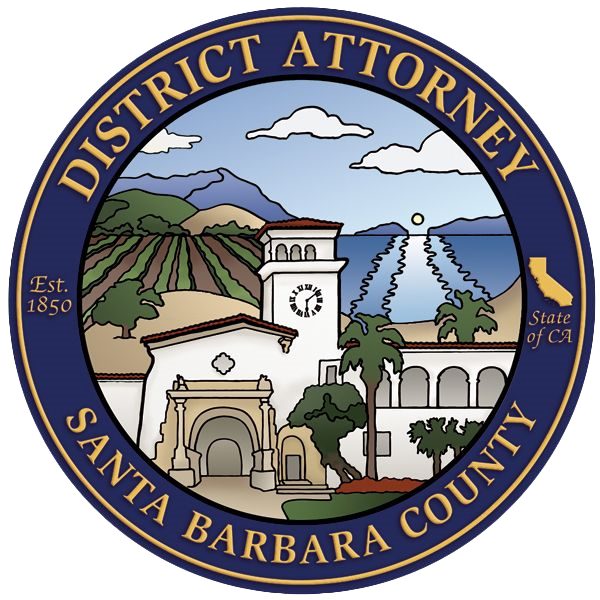Neighborhood Restorative Justice Program (NRJP)
The NRJP is a community-driven, pre-filing diversion program designed to divert low-level misdemeanor offenses from entering the criminal justice system overseen by the district attorney’s office.
Misdemeanor Diversion Program (MDP)
Misdemeanor Diversion Program (MDP) is a pre-filing 90-day program, in which defendants are required to attend a class offered by Pacific Educational Services (PES) and show the DA’s office proof of completion. If MDP is not completed, the charges will then be filed and the defendant will go into the criminal justice system. There are two levels of the program: (1) MDP Program (Level I) - $250; and (2) DEJ Program (Level II) - $450. If restitution is involved, defendant will pay a $25 monthly restitution collection fee in which PES collects, monitors, and distributes. Flexibility is granted to filers. In order to be eligible for MDP, defendant must: (1) not be on probation; (2) never have had a previous grant of probation terminated unsuccessfully; (3) never had inflicted an injury upon the victim or any other person during the commission of the crime; and (4) not have had exhibited criminal sophistication through his or her modus operandi, or criminal intent.
Theft Awareness Program (TAP)
Theft Awareness Program (TAP) is a pre-plea 90 day program for first time defendants with minor theft offenses. Defendant is required to attend a class, return to court with proof of completion and pay a $300 admin fee, in which the case is continued and eventually dismissed. If TAP is not completed, the defendant must enter plea to charges against them.
Credo 47
Credo 47 is a grant-funded diversion program administered by the District Attorney’s Office, the Public Defender and Behavioral Wellness, which benefits minor criminal offenders and low-level felony offenders who have serious mental illness/homelessness/substance use disorders.
Pre-Arrest:
- If the person is willing to participate in program, no arrest will be made and the person will be taken to either the Sobering Center or the South County Crisis Services hub for stabilization and referral to treatment, housing, and mental health services.
Post-Arrest:
- If defendant lacks willingness to participate in program, but would still be a great candidate, will be referred to the DA for consideration pre-filing, and participation may be allowed.
Post-filing/Pre-arraignment:
- If entry to the program is requested after charges have been filed, cases must be screened and approved, and arraignment will be continued for 60-90 days.
Military Diversion Program – PC1001.80 (MILD)
Military Diversion Program (MILD) is a pre-plea diversion program for veterans and active duty military members who commit misdemeanors offenses and can establish that their offense was caused by substance abuse, PTSD, depression, traumatic brain injury, or sexual trauma due to their military service per PC 1001.80. With consent and waiver of defendant’s speedy trial right, the court is authorized to postpone prosecution of a misdemeanor. If defendant’s performance is not satisfactory, criminal proceedings can be reinstated; if defendant completes program satisfactorily, the charges are dismissed.
Mental Health Diversion – PC 1001.36 (MHD)
Mental Health Diversion (MHD) is a pre-plea diversion program for felony and misdemeanor charges. Defendants charged with an applicable offense do not enter a guilty or no contest plea. With consent and waiver of defendant’s speedy trial right, the court is authorized to postpone prosecution. If defendant’s performance is not satisfactory, criminal proceedings can be reinstated; if defendant completes program satisfactorily, charges are dismissed.
Pre-Plea Substance Abuse Treatment (SATC)
Pre-Plea Substance Abuse Treatment (SATC) is for those charged with misdemeanors and first time felonies involving theft and substance abuse. They can complete a drug treatment program without having to enter a guilty plea or suffer a conviction. Upon successful completion of the program, the charges are dismissed, and the defendant never suffers a conviction. Misdemeanors participate for at least 6-9 months, felonies for at least 12 months. Waives his/her right to speedy trial. If defendant fails program, the court decides guilt based on police/lab reports and sentences thereafter. If defendant successfully completes the program, the case is dismissed
Post Plea Treatment Programs:
Dual Diagnosis Court (DDX)
Dual Diagnosis Court (DDX) is a post-plea 12-18 month program in which defendants are on supervised probation. DDX serves a smaller population of felony offenders experiencing co-occurring disorders of mental illness and substance abuse, and is an alternative to Mental Health Treatment Court when defendant has co-occurring disorder.
Mental Health Treatment Court (MHTC)
Mental Health Treatment Court (MHTC) is a post-plea 12-18 month program in which defendants are on supervised probation. Each candidate will be reviewed and considered for the program based on their criminal and mental health history. Defendant must participate in all recommended mental health therapies and take all recommended medications. A post-plea admission results in an added term and condition to probation.
Veterans Treatment Court (VTC)
Veterans Treatment Court (VTC) is a Post-Plea program with supervised probation that provides treatment programs for military veterans and active duty service members. Upon successful completion, the court may consider on a case-by-case basis if probation should be terminated, and whether a dismissal of charges pursuant to PC 1203.4 should be granted.
